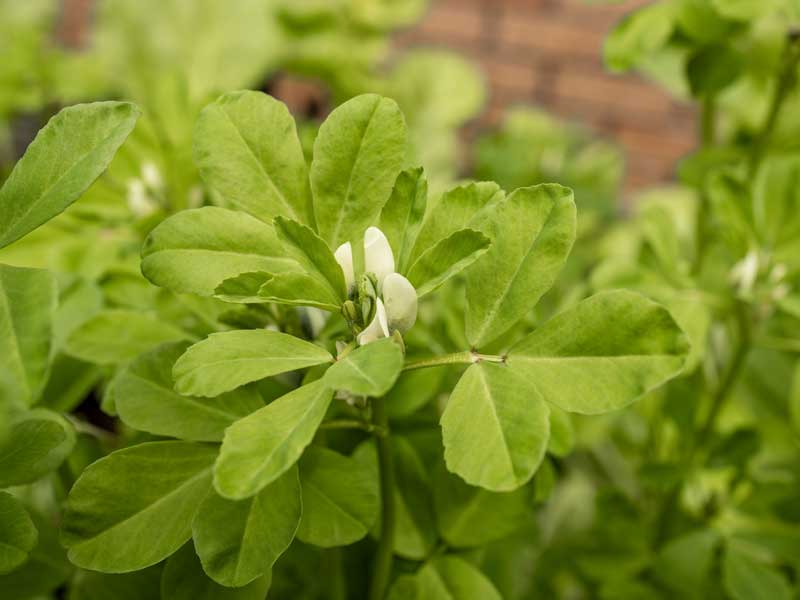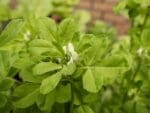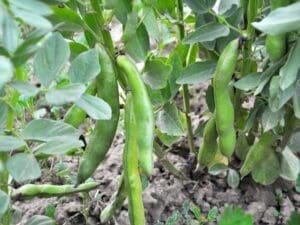GREEN MANURE Fenugreek Seeds
Botanical name: Trigonella foenum-graecum
Fenugreek (Trigonella foenum-graecum) is a cool-season annual legume valued for its ability to improve heavy soils, fix nitrogen, and grow in low temperatures. It germinates reliably in cold soil, making it a standout green manure for late autumn and early spring sowings. Fenugreek adds organic matter, loosens clay, suppresses weeds, and improves soil fertility. Additionally, the seeds are widely used in spice mixes like curry powder.
- Fixes atmospheric nitrogen to naturally fertilise and revitalise tired soils.
- Germinates in cool soils and thrives in compacted ground, making it ideal for clay improvement.
- Quick-growing cover that suppresses weeds and adds organic bulk before flowering.
- Valuable as both a green manure and a culinary herb—seeds used in cooking and spice blends.
- Performs well in various soils and is easy to establish in cooler conditions.
Plant Details:
- Type: Cool-season annual legume, cold-soil germinator
- Height: 30–60 cm
Sowing Information:
- Sow When:
Temperate Regions: February–June
Subtropical Regions: April–June
Tropical Regions: Not recommended - Germination: 7–14 days
- Depth: Sow 1–2 cm deep
- Position: Full sun
- Sow Where: Directly into prepared garden beds or fields; rake in and water well
- Soil Type: Adaptable to most soils; excellent for loosening clay and improving drainage
- Spacing: Broadcast evenly or sow in rows 20 cm apart
Management:
- Water regularly through germination and early growth stages.
- Mow or cut before flowering to maximise nitrogen fixation and prevent seed set.
- Allow plant matter to break down for 2–3 weeks before planting your next crop.
Harvest and Incorporation:
Cut and dig into the soil 6–8 weeks after sowing, before flowering begins. Let the residue decompose to return nutrients and organic matter to the soil.
When to Sow Fenugreek in Your Climate
| Climate Zone | Best Planting Time | Tips |
|---|---|---|
| Temperate | February–June | Ideal for early autumn or late winter sowing. Germinates well in cold soil. |
| Subtropical | April–June | Sow in early dry season; prefers cooler temperatures for germination. |
| Tropical | Not recommended | Too warm and humid for reliable establishment. |
| Cool | February–April | Take advantage of cold-soil germination for early autumn planting. |
| Arid | March–May | Irrigate lightly at sowing to assist germination in dry conditions. |
Quick Growing Guide
| Aspect | Details |
|---|---|
| Germination Time | 7–14 days |
| Sowing Depth | 1–2 cm |
| Watering | Water well during establishment; moderately drought-tolerant once growing. |
| Growth Period | 6–8 weeks before incorporation |
| Incorporation | Cut before flowering and dig into soil 2–3 weeks before planting the next crop. |




